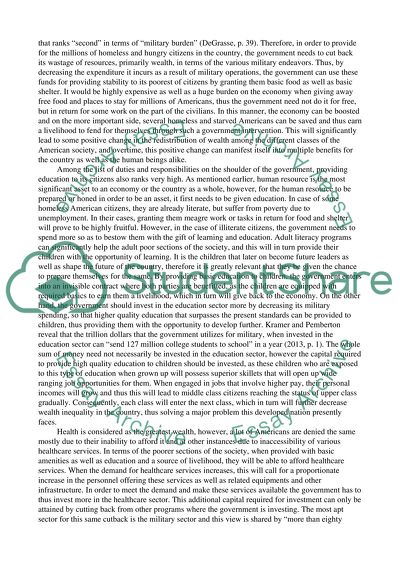Cite this document
(“The redistribution of wealth in US Military Spending Research Paper”, n.d.)
The redistribution of wealth in US Military Spending Research Paper. Retrieved from https://studentshare.org/english/1497014-the-redistribution-of-wealth-in-us-military
The redistribution of wealth in US Military Spending Research Paper. Retrieved from https://studentshare.org/english/1497014-the-redistribution-of-wealth-in-us-military
(The Redistribution of Wealth in US Military Spending Research Paper)
The Redistribution of Wealth in US Military Spending Research Paper. https://studentshare.org/english/1497014-the-redistribution-of-wealth-in-us-military.
The Redistribution of Wealth in US Military Spending Research Paper. https://studentshare.org/english/1497014-the-redistribution-of-wealth-in-us-military.
“The Redistribution of Wealth in US Military Spending Research Paper”, n.d. https://studentshare.org/english/1497014-the-redistribution-of-wealth-in-us-military.


